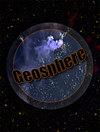Seeing is believing: Climate change graph design and user judgments of credibility, usability, and risk
IF 1.7
3区 地球科学
Q3 GEOSCIENCES, MULTIDISCIPLINARY
引用次数: 0
Abstract
Psychological science can be used to inform climate science graph design, resulting in more meaningful and useful graphs for communication, especially with non-scientists. In this study, we redesigned graphs from the Intergovernmental Panel on Climate Change (IPCC) Fifth Assessment Report (AR5) and compared participant attention and perceptions between original and novel designs with pre-/post-surveys, eye-tracking, graph usability and ranking activities, and interviews. Participants were selected for lower content knowledge and risk perception of climate from a sample of undergraduate students in the southeastern U.S. Here, we demonstrate our robust graph redesign process and the associated impacts on participants’ perceptions of graph usability, graph and scientist credibility, and risk associated with climate change. These findings indicate that interacting with climate change graphs may impact perceptions that are relevant to individuals’ motivation to take action to address climate change across political audiences, and possibly even more so among self-identified Conservatives. Additionally, participants who viewed graphs designed to align with research-informed best practices had greater increases in perceptions of climate scientist credibility and climate change risk, though these contrasts were not statistically significant (p > 0.05). Participants rated redesigned graphs as being more trustworthy, which is critical to successful climate change communication, and our qualitative results provide a possible explanation and initial points of exploration for future research.眼见为实:气候变化图形设计和用户对可信度、可用性和风险的判断
心理科学可以用来为气候科学图表设计提供信息,从而产生更有意义和有用的图表,用于交流,特别是与非科学家。在这项研究中,我们重新设计了政府间气候变化专门委员会(IPCC)第五次评估报告(AR5)中的图表,并通过调查前/后、眼动追踪、图表可用性和排名活动以及访谈,比较了参与者对原创和新颖设计的关注和感知。从美国东南部的本科生样本中选择了对气候的内容知识和风险感知较低的参与者。在这里,我们展示了我们稳健的图表重新设计过程,以及对参与者对图表可用性、图表和科学家可信度以及与气候变化相关的风险的感知的相关影响。这些发现表明,与气候变化图表的互动可能会影响政治受众对个人采取行动应对气候变化的动机的看法,甚至可能对自认为是保守党的人产生更大的影响。此外,观看旨在与研究知情的最佳实践相一致的图表的参与者对气候科学家的可信度和气候变化风险的看法有更大的增加,尽管这些对比在统计上并不显著(p >0.05)。参与者认为重新设计的图表更值得信赖,这对成功的气候变化沟通至关重要,我们的定性结果为未来的研究提供了可能的解释和初步的探索点。
本文章由计算机程序翻译,如有差异,请以英文原文为准。
求助全文
约1分钟内获得全文
求助全文
来源期刊

Geosphere
地学-地球科学综合
CiteScore
4.40
自引率
12.00%
发文量
71
审稿时长
6-12 weeks
期刊介绍:
Geosphere is GSA''s ambitious, online-only publication that addresses the growing need for timely publication of research results, data, software, and educational developments in ways that cannot be addressed by traditional formats. The journal''s rigorously peer-reviewed, high-quality research papers target an international audience in all geoscience fields. Its innovative format encourages extensive use of color, animations, interactivity, and oversize figures (maps, cross sections, etc.), and provides easy access to resources such as GIS databases, data archives, and modeling results. Geosphere''s broad scope and variety of contributions is a refreshing addition to traditional journals.
 求助内容:
求助内容: 应助结果提醒方式:
应助结果提醒方式:


